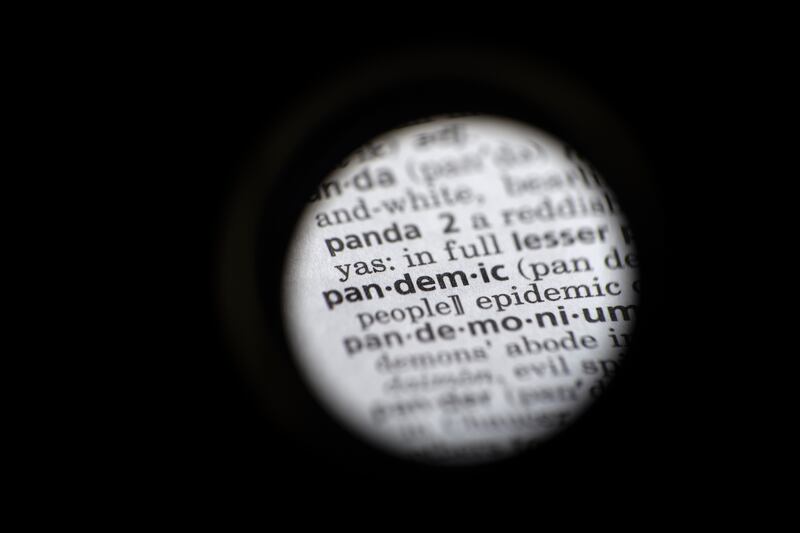In a decision that really shouldn’t come a surprise to anyone, both Dictionary.com and Merriam-Webster — two of America’s most ubiquitous lexicographic resources — revealed on Monday that “pandemic” is their 2020 word of the year. Odds are you’ve heard the word every day since March.
Dictionary.com shared its reasoning for the decision in an announcement on its site on Monday morning:
“From our perspective as documenters of the English language, (the) word (‘pandemic’) kept running through the profound and manifold ways our lives have been upended—and our language so rapidly transformed—in this unprecedented year.”
The site defines a pandemic as a disease that’s “prevalent throughout an entire country, continent, or the whole world; epidemic over a large area.”
According to Dictionary.com’s senior research editor, John Kelly, searches for the word spiked more than 13,500% on March 11, the day that the WHO designated COVID-19 as a global pandemic. In an interview with the Associated Press, Kelly said:
“That’s massive, but even more telling is how high it has sustained significant search volumes throughout the entire year. Month over month, it was over 1,000% higher than usual. For about half the year, it was in the top 10% of all our lookups.”
Kelly suggested that, while “pandemic” may have been an obvious choice for 2020’s word of the year, the impact of the global event has effectively, “created a new language for a new normal.”
According to the Associated Press, words like asymptomatic, furlough, non-essential, hydroxychloroquine and a host of others have seen major search increases on Dictionary.com as well.
The Associated Press reports that the word pandemic comes from the ancient Greek term “pandemos,” which means, “pertaining to all people.”
According to Kelly, the word entered the English language in the 1660s, and the earliest example of it appears in a medical text penned by Gideon Harvey, a Dutch-born physician.
Peter Sokolowski, editor at large for Merriam-Webster, told the Associated Press, “It’s probably the word by which we’ll refer to this period in the future.”

